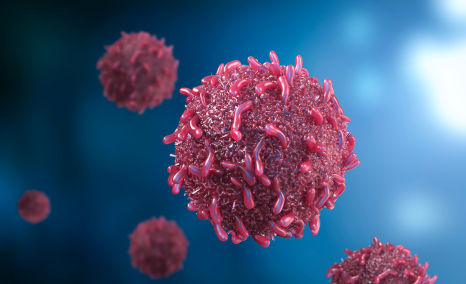Valeant’s asset-sale; Sanofi coughs up $19.8M; Sanofi’s Genzyme; India’s Alkem; GSK’s inhalers
Apr 06, 2017
Table of Contents
Valeant’s asset-sale woes continue as Stada, Mundipharma lowball iNova bids
Embattled Valeant has promised its investors $8 billion in asset sales—but as the company’s latest deal struggles continue to demonstrate, getting there may not be so easy. The bids rolling in for Valeant’s Australian iNova subsidiary aren’t quite up to expectations, with a private equity consortium comprising The Carlyle Group and Pacific Equity Partners, as well as fellow drug makers Mundipharma and Stada, each launching offers of around $900 million. Now, the Review says, Valeant is weighing whether to hang onto iNova—which sells products ranging from weight-loss drug Duromine to asthma treatment Qvar—after the Goldman Sachs-run sales process. Late last year, Valeant also reportedly tried to sell its underperforming GI unit, Salix, to Japan’s Takeda, but talks on a $10 billion deal ultimately fell through over price.
Sanofi Pasteur coughs up $19.8M to settle claims it overbilled the VA
Sanofi Pasteur agreed to pay more than $19.8 million to settle allegations that it overcharged the Department of Veterans Affairs for its products. The French pharma’s vaccines unit voluntarily reported the “calculation and reporting error” with the VA in 2012, and has since “cooperated fully and negotiated in good faith with the government,” according to a statement from the company. Sanofi Pasteur based its first disclosure to the U.S. government on products sold to the VA from 2007 to 2011. A follow-up investigation by the VA’s Office of Inspector General found the overcharging error dated back to 2002, the DOJ said in a statement. Sanofi said that, for some products, the miscalculation led to a lower price to the VA. The company will not seek reimbursement for those undercharges, it said. Neither the DOJ nor Sanofi identified the products involved.
Downloads
Click Here To Get the Article in PDF
Recent Articles
- Sanofi, Regeneron one step closer; Pharma’s deal; J&J and Actelion deal
- Global atrial fibrillation market is expected to grow to $12.5 billion by 2020
- DelveInsight’s Hematological disorders based Gene Therapy Reports
- Tesaro puts AstraZeneca; XELJANZ® receives; Innovus nabs; Alexion brings
- Cannabidiol trial; MyoKardia aims; LDL drug data
With key rollouts looming, Sanofi’s Genzyme chief Meeker hands over the helm
As Sanofi gears up its biggest launch of the year, the Genzyme chief tasked with overseeing that rollout is leaving the company. David Meeker, CEO of the U.S.-based Sanofi unit and EVP overall, will exit as of June, with Bill Sibold—Sanofi Genzyme’s head of multiple sclerosis, oncology and immunology—taking his place. Sibold’s ascendance comes as Sanofi Genzyme grows in importance for the France-based drug maker. Pegged as one of the company’s “growth platforms” from the days after ex-CEO Chris Viehbacher engineered the acquisition, Genzyme is shouldering an even bigger load now. It’s another in a series of executive changes at Sanofi as well, as CEO Olivier Brandicourt, who took the helm in February 2015, shuffles his team and the divisions they lead.
India’s Alkem says the FDA has approved upgrade plans for cited API plant
After a year of nothing but bad news about FDA citations of its plants, India’s Alkem Laboratories has announced something positive. The Indian drugmaker said that the FDA has issued an Establishment Inspection Report, signing off on Alkem’s plans to upgrade operations at its API plant in Ankaleshwar, India. The plant had been cited with a Form 483 with three observations during a visit by the FDA in December. The drugmaker has 14 manufacturing sites in India and the FDA has been doing a series of inspections after being alerted to problems by U.K. regulators who claimed the drugmaker had used fake data in clinical trials of an unspecified antibiotic and brain disorder drug. That alert came after the FDA had serious issues with Alkem shipping unapproved drugs to the U.S.
GSK recalling nearly 600,000 Ventolin inhalers in U.S.
With sales of its respiratory drugs doing well, GlaxoSmithKline has been spending hundreds of millions of dollars to expand manufacturing of several kinds of inhalers. But a glitch at one of its Ventolin inhaler plants has resulted in recalling nearly 600,000 units in the U.S. According to an FDA Enforcement Report, GSK recently began recalling 593,088 Ventolin inhalers after discovering that an elevated number of the units were out of specification for leak rate, the company reported. The units were manufactured at its plant in Zebulon, North Carolina. A GSK spokesperson pointed out this was not a consumer level recall, so patients can keep any Ventolin inhalers they have on hand. The voluntary recall is to the retail and wholesaler level so products are being removed from those channels.
Downloads
Article in PDF
Recent Articles
- Pharma M&A Rebound May Take a While in 2017
- Parkinson’s and Tuberculosis Share a Common Protein That Could Provide Better Drugs for Both
- Cytomegalovirus infection Market
- New Approach Proprotein Convertase Subtilisin/Kexin Type 9 (PCSK9) Inhibitors
- Colony Stimulating Factor 1 Receptor (CSF1R) and Its connection with Memory Retention




